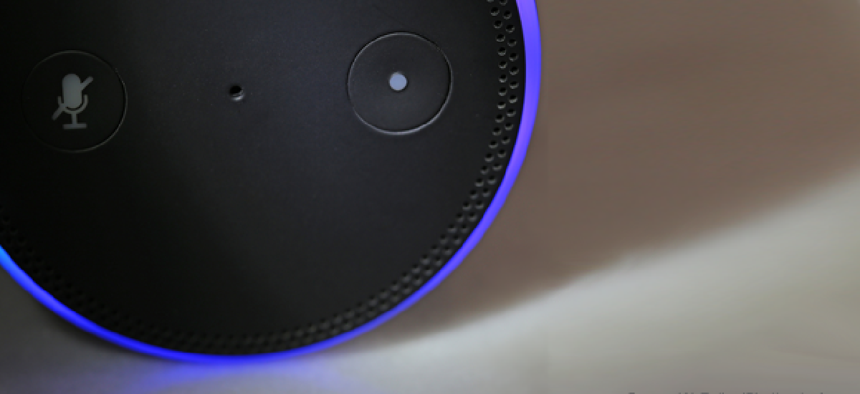GSA launches virtual assistant pilot


Connecting state and local government leaders
The project will help make government information available to consumers via personal digital assistants such as Amazon Alexa, Microsoft Cortana, Google Assistant and Facebook Messenger.
The General Services Administration has launched an open source pilot that will make government information available to consumers via personal digital assistants such as Amazon Alexa, Microsoft Cortana, Google Assistant and Facebook Messenger.
GSA’s Emerging Citizen Technology program is working with federal agencies to prepare a solid understanding of the business cases and impact of these technologies, according to an April 24 blog post by Justin Herman of GSA’s Office of Citizen Services and Innovative Technologies. The project’s findings will be shared with the tech industry so companies can learn more about working with the federal government and help advance more automated, self-service access to public service information.
The first phase of the pilot includes read-only use of public data, according to Herman, though agencies and providers are discussing plans to expand it in future phases. Several agencies have asked to participate in the pilot and have suggested concepts and questions a personal assistant could address:
The Department of Energy, for example, said it wants to make available information on home energy savings. The Department of Health and Human Services suggested healthy baby tips, while the Department of Transportation proposed offering flight delay information available via the technology.
Some agencies expressed a preference for a particular platform. The Federal Student Aid program, which gets many questions via social media, would like to start with a Facebook chatbot for handling inquiries.
The HHS Office of the National Coordinator of Health IT and the Law Library of Congress both said they have a number of web resources they would like to open to the personal assistants. Agencies like the National Archives and Records Administration, the Park Service and the Smithsonian Institutions suggested calendar- and location-based for visitors.
Some agencies have already begun experimenting with the technology. The Department of Veterans Affairs is working on a project that makes it easier for veterans to schedule appointments that are integrated with their health records and the VA’s workflow. It uses Nuance’s voice-activated virtual assistant shows patients openings in that doctor’s schedule. The U.S. Citizenship and Immigration Services uses Emma, a virtual assistant that helps to answer visitors' inquiries. Emma is now answering nearly 500,000 questions per month with a 90 percent success rate.
The GSA pilot plans to move quickly, according to the program’s GitHub wiki, and to produce a number of public service concepts agencies can review “as well as the creation of a new field of shared resources and recommendations that any organization can use to deliver our program data into these emerging services.”
NEXT STORY: Taking City Sustainability to the Next Level





